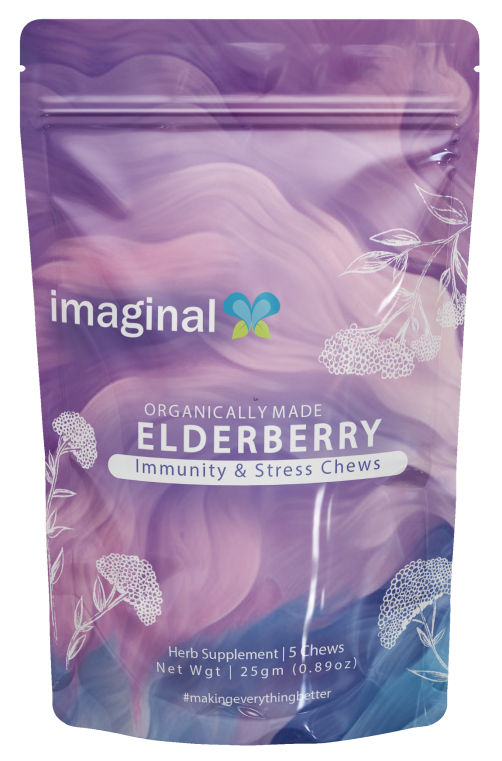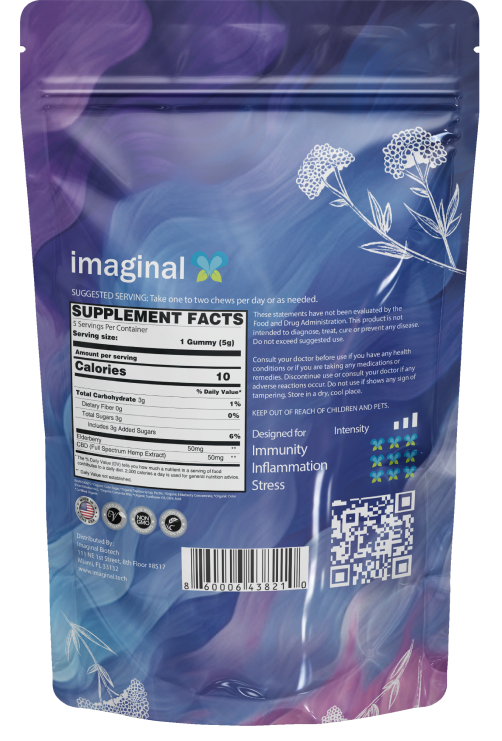Over the past few years, CBD has become extremely popular. To give you an idea of CBD's popularity, it is consistently covered by CNN, MSNBC, and BBC, three of the most popular media companies in the world. The fact that you are reading this article is a testament to CBD’s popularity.

But you aren’t here to read about CBD’s popularity. You are here to get an answer to one of the most frequently asked questions in the CBD world. Will using CBD make me fail my drug test?
People ask this question so often that we decided to do an article on it. Here's what you need to know about CBD and drug tests.
What is CBD?

Before we get into the nitty-gritty of drug tests, we need to look at what CBD is. We did a full dive into CBD, and you can read it here. For now, we are going to give you the cliff notes version.
CBD, short for cannabidiol, is one of the main compounds found in the marijuana plant. Research indicates that CBD makes up almost 40% of the marijuana plant’s extract. CBD belongs to a group of compounds known as cannabinoids, and another popular member of the group is THC.
CBD has enormous potential, and because of this, it has created a buzz in the medical and wellness worlds. Many scientists have dedicated their time and skills to try and unravel the secrets of CBD. A lot of people are using it in their daily lives with varying levels of success.
However, despite all this success, there is a major stumbling block to widespread CBD acceptance. And that is its association with marijuana and THC.
When people first hear about CBD, and they learn that it comes from cannabis, they immediately assume that it makes you high. Although this isn’t true, it is one of the main reasons why people are worried about CBD and drug tests.
And speaking of drug tests
What you should know about drug tests

When the words drug tests come up, it elicits different reactions in different people. Some people welcome them with open arms, but most people try to avoid them as much as possible.
However, in the modern era, it's pretty challenging to avoid drug tests altogether. You might be tested for drugs if you are in the military, at your new place of work or if you are involved in an accident. Odds are that you might have had a drug test done on you in the past six months.
But if you haven’t had a drug test recently, you might be wondering what happens at one.
What happens at a drug test?
According to drugs.com, any reputable drug screening program will involve two steps. The initial test (immunoassay) and the confirmatory test.
Since the immunoassay is first, it is often used as a screening test. This means that if the immunoassay comes back negative, then the confirmatory test isn’t required. The results are reported as negative.
However, if the results do not come back negative, then a confirmatory test is needed. The most common confirmatory test is the gas chromatography-mass spectrometry test. In this test, the lab will use a process that combines the properties of both tests to identify the substance within the test sample.
What are the common samples used in a drug test?
During drug testing, some samples are more frequently used than others. These are:

- Urine- In most drug tests, urine is the most common sample. This is because urine can reveal the presence of drugs for some time after the effects have worn off.
- Saliva- Saliva is the second most common sample in drug testing. Saliva tests are usually efficient at detecting drug use that has happened a short while ago. It is not ideal for identifying long-term drug use.
- Blood- Blood is used as a sample if the testers want to measure the number of drugs in a person's system at a particular moment. It is usually efficient if it is performed within the first few hours after someone has used drugs. The biggest drawback of using blood as a sample is that a lot of drugs are metabolized quickly and can’t be detected after a certain period.
- Hair- Using hair as a sample for drug test allows the testers to determine drug use over the long term. It can show the drugs that someone has used over the past 90 days.
The 5/10 panel drug tests
Now that we’ve looked at how drug testing is carried out let's look at what drugs are tested during these tests.
In most cases, the tests are looking for the presence of five drugs, and this is commonly referred to as the five-panel drug test. These five drugs are:
- Marijuana(THC)
- Cocaine
- MDMA (ecstasy)
- PCP (phencyclidine)
- amphetamines, methamphetamine
- opiates (such as hydrocodone, codeine, oxycodone, morphine, and heroin)
In other cases, the drug test may be looking for the presence of 10 drugs. These drugs include the five mentioned above and
- methaqualone (Quaaludes,)
- methadone or other narcotic prescription drugs
- benzodiazepines (such as oxazepam and alprazolam)
- propoxyphene (Darvon)
- barbiturates (e.g., butalbital, amobarbital, pentobarbital, phenobarbital, or secobarbital)
What does all this have to do with CBD?
In the list of drugs that are commonly tested, CBD does not make an appearance. And you might be wondering why there’s a lot of panic surrounding CBD and drug tests. If they aren't looking for CBD, why should you be worried?
The truth is, it’s not CBD they are after; it's THC. This is because there is a growing body of evidence that suggests that prolonged use of THC can have negative effects on the brain.
Research has shown that rats exposed to THC before or soon after birth or during adolescence have notable difficulties learning and with their memory. Several other studies have shown that when adolescent rats are exposed to THC, it causes a structural and functional change in the hippocampus. (The hippocampus is a part of the brain that plays a massive role in memory and learning.) These structural and functional changes led to cognitive impairment in adult rats.
These studies, and an ever-growing body of anecdotal evidence, have made THC persona non grata in most professional environments. This is why companies regularly test for the presence of THC.
Do CBD products contain THC?

Now that you know it’s THC that they are after, your mind is probably racing. You are probably wondering whether those vegan CBD gummies you bought the other day contain THC. Before you rush off to check, there’s something that you need to know.
There are three types of CBD products in the market:
So if you are using broad-spectrum CBD products or CBD isolate, there is nothing for you to worry about. This doesn't mean that if you are using full-spectrum CBD, you should panic. The government regulates the amount of THC contained in full-spectrum CBD. In the US, full-spectrum CBD products cannot contain more than 0.3% THC. If they contain more THC than is allowed, then they are illegal. And these products put you at a high risk of failing a drug test.
Are there situations when using CBD will make me fail a drug test?
CBD may make you fail your drug test in the following scenarios:
- If you take products with high quantities of THC.
- If you use a THC product that has been wrongly labeled as a CBD product.
- Using products that have been contaminated by THC.
How long do CBD and THC stay in the body?
Now that you know the scenarios where CBD can make you fail a drug test, you need to know how long CBD and THC stay in your system. This will enable you to gauge whether or not you are at risk of failing a drug test if you suspect that your CBD was contaminated.
For CBD, the amount of time it stays in your system is heavily dependent on how you use it.
- Tinctures- Tinctures are primarily used sublingually, and one notices an effect after 15 to 30 minutes. The effects of tinctures can last up to 6 hours.
- Capsules- Capsules are taken orally, and it can take up to an hour for you to feel the effects. The effects can last up to 8 hours.
- Edibles/Beverages- Edibles and beverages are both taken orally, and it normally takes up to an hour to feel the effects. The effects can last up to 6 hours.
The amount of time THC lasts in your system is determined by how frequently you use it. If you rarely use THC, your body can eliminate it within a couple of days. However, if you are a frequent THC user, it remains in your body for longer with some studies suggesting that it can last up to 1 month.
How to safeguard yourself from failing a drug test when using CBD
If you want to test negative on all your drug tests while using CBD, there are several steps that you have to take.
- Ensure you purchase your CBD products from a reputable company- When buying CBD products, you need to be careful of where you get them. Buying from a reputable source will ensure that you get CBD that is not contaminated or mislabeled.
- Looking at the lab tests before you buy CBD- Looking at lab tests will let you know the exact quantity of THC in your CBD product. If the amount of THC is higher than the legal threshold, you should avoid it.
If you follow these steps, you can enjoy CBD without worrying about drug tests.
If you enjoyed this article, please take a minute to share it on social media so that your friends and family can learn about CBD and drug tests. Once you do that, drop by our shop where you can buy CBD products for yourself and your loved ones.




